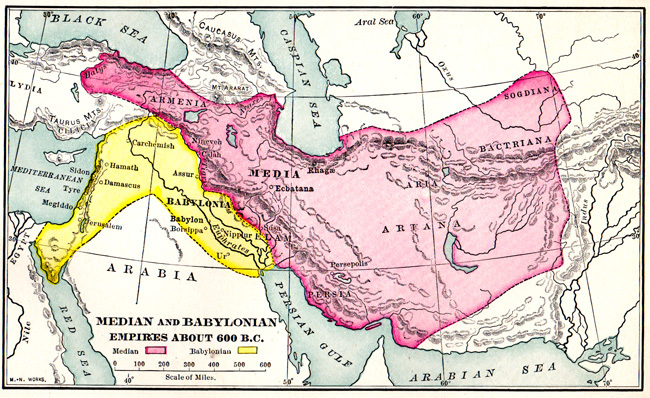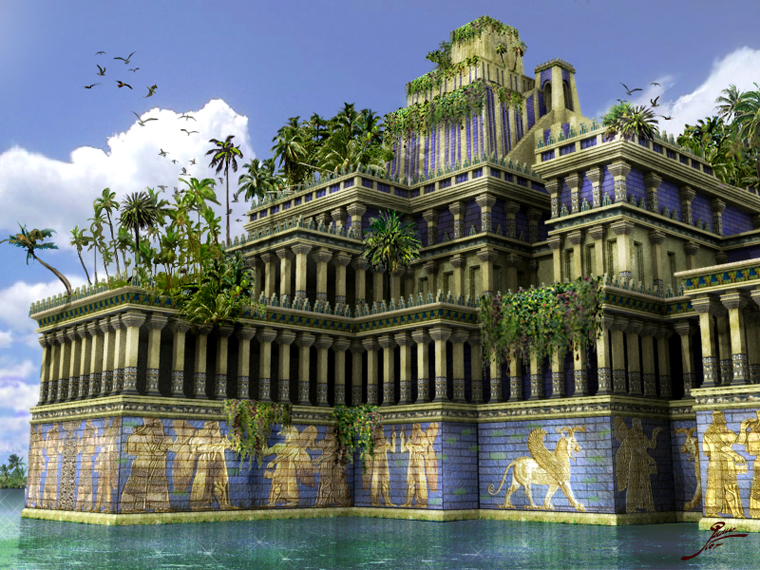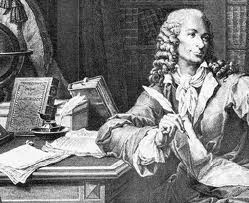Here’s a basic hypothesis for life outcomes. Bear with me on this, as those of you who know your Voltaire are going to say I’m straying far too far off the reservation…
Imagine that the outcomes that happen to an individual person in life are determined by 80% “world events” which are outside of his control and 20% “specific performance” which is within his control (comments please, on the percentage split). [as an aside, anyone in finance will recognise the parallels with “market” and “specific” risk – presumably (??) the world in general operates like this, not just stock markets].
And let’s say that on average, half of “world events” are “good” ones for a particular individual, and half of them are “bad” ones. So, your life outcome from “world events” is 40. And let’s say on individual performance, a person thinks he is a “10-15”, say 15 for the high achievers amongst us. So, add them up, and even a high achiever only gets to 55, on average. If events always go his way, he gets to 95, and if events always go against him, he gets to 15. But his expectation is 55.
Some faiths interpret “world events” in that model above as “Fate”. The faiths typically differ as to what Fate implies. The Judeo-Christian / Abrahamic tradition basically says that if you live a virtuous life then divine intervention tilts Fate in your favour. The Buddhist / Hindu tradition says that you can only escape the clutches of Fate through a process of self-realisation; otherwise your Fate is written, and that’s it.
Where on this line does Voltaire site in the tale of Zadig ? Hard to say, but I think he is undecided. Zadig is frustrated that in his own eyes he is virtuous, wise, and makes good decisions (he probably rates himself as a 20), and yet his outcomes do not always reflect this.
“Zadig, avec de grandes richesses, et par conséquent avec des amis, ayant de la santé, une figure amiable, un esprit juste et modéré, un cœur sincère et noble, crut qu’il pouvait être heureux. ”
“As Zadig was immensely rich, and had consequently Friends without Number; and as he was a Gentleman of a robust Constitution, and remarkably handsome; as he was endowed with a plentiful Share of ready and inoffensive Wit: And in a Word, as his Heart was perfectly sincere and open, he imagin’d himself, in some Measure, qualified to be perfectly happy.”
Some outcomes for him are simply due to bad luck, and he does try to pick himself up:
“Tout ce que j’ai fait de bien a toujours été pour moi une source de malédictions, et je n’ai été élevé au comble de grandeur que pour tomber dans le plus horrible précipice de l’infortune. ”
“All the Acts of Benevolence which I have shewn, have been the Foundation of my Sorrows, and I have been only rais’d to the highest Spoke of Fortune’s Wheel, for no other purpose than to be tumbled down with the greater Force.”
Others are, sorry Zadig, of your own making, as you do like to chase the girls a bit:
“Qu’est-ce donc que la vie humaine ? O vertu ! à quoi m’avez-vous servi ? Deux femmes m’ont indignement trompé ; la troisième, qui n’est point coupable, et qui est plus belle que les autres, va mourir ! ”
“What is this mortal life ! O Virtue, Virtue, of what Service hast thou been to me ! Two young Ladies, a Mistress and a Wife, have prov’d false to me; a third, who is perfectly innocent, and ten thousand Times handsomer than either of them, has suffer’d Death, ‘tis probable, before this, on my Account !”
So you probably aren’t as close to a 20 as you think you are.
It is not revealing too much to say that in the end Zadig reaches his goal of happiness. But he has to go through some trials and tribulations to get there. He kills some Egyptians in Egypt whilst defending a maiden’s honour. Though his defence is accepted, the law says that he must nevertheless become a slave:
“Les Egyptiens étaient alors justes et humains. Le peuple conduisit Zadig à la maison de ville. On commença par le faire panser de sa blessure, et ensuite on l’interrogea, lui et son domestique séparément, pour savoir la vérité. On reconnut que Zadig n’était point un assassin : mais il était coupable du sang d’un homme : la loi le condamnait à être esclave.”
“The Egyptians at that Time were just and humane. The Populace, ‘tis true, hurried Zadig to the Town Gaol; but they took care in the first Place to stop the bleeding of his Wounds, and afterwards examin’d the suppos’d delinquents apart, in order to discover, if possible, the real Truth. They acquitted Zadig of the Charge of wilful and premeditated Murder; but as he had taken a Subject’s Life away, tho’ in his own Defence, he was sentence’d to be a Slave” as the Law directed.”
He becomes the slave of an Arab merchant Setoc; the merchant realises over time that Zadig has skills way beyond those of an average slave and they become friends. A taste of Voltaire’s wicked humour, in reference to Zadig’s womanising tendencies:
“Sétoc enchanté fit de son esclave son ami intime. Il ne pouvait pas plus se passer de lui qu’avait fait le roi de Babylone ; et Zadig fut heureux que Sétoc n’eût point de femme. ”
“Setoc, transported with his good Success, of a Slave made Zadig his Favourite Companion and Confident; he found him as necessary in the Conduct of his Affairs, as the King of Babylon had before done in the Administration of his Government; and lucky it was for Zadig that Setoc had no Wife.”
Zadig’s new found happiness at being freed from slavery does not last long. He makes his way back to Babylon, where he finds that Astarté has been reinstated as queen and that a competition is underway to find a queen for her. Zadig enters the competition, which takes place between four warriors dressed in full armour, and having anonymous identities. He wins, but before his identity is revealed his armour is stolen by one of his rivals, and Zadig is therefore eliminated from the competition.
His final journey (a parallel to the “40 days”) takes him back into the wilderness. Here he meets hermit who eventually reveals himself to be the Angel Jesrad. The hermit teaches Zadig that his destiny is beyond his control, and that Evil is a necessary counterweight to Good:
“Les méchants…sont toujours malheureux : ils servent à éprouver un petit nombre de justes répandus sur la terre, et il n’y a point de mal dont il ne naisse un bien. ”
“The Wicked…are always unhappy. Misfortunes are intended only as a Touch-stone, to try a small number of the Just, who are thinly scattered about this terrestrial Globe: Besides, there is no Evil under the Sun, but some Good proceeds from it.”
As an example, the hermit kills a 14-year-old boy by drowning him, explaining to Zadig that had he not done so, the boy would have killed his aunt, and indeed Zadig himself. So, Voltaire thinks that Fate can indeed be altered by divine intervention. The Angel tells Zadig that his destiny lies back in Babylon, and suggests that he go back there.
Which he does.
And this time he truly finds the “Happiness” that he is looking for (read the book to find out how).
So who is Zadig ? He is a philosopher, wise man and warrior living in the ancient kingdom of Babylonia. Voltaire tells his story through Zadig’s reflections on the nature of Mankind:
“Il se figurait alors les homes, tels qu’ils sont en effet, des insectes se dévorant les uns les autres sur un petit atome de boue.”
“He then reflected on the whole Race of Mankind, and look’d upon them, as they are in Fact, a Parcel of Insects or Reptiles, devouring one another on a small atom of clay.”
His journey is one of self-discovery, that starts with the naivety of his own moral standpoint:
“Zadig voulut se consoler, par la philosophie et par l’amitié, des maux que lui avait faits la fortune.”
“As Zadig had met with such a Series of Misfortunes, he was determin’d to ease the Weight of them by the Study of Philosophy, and the Conversation of select Friends.”
There is historical and cultural interest in the book too. We think today of cities in the Arab world which have become trading hubs where merchants from all over the world congregate. But it was no different in ancient times too, for example this reference to what is now known as Basra in modern Iraq:
“Il lui paraissait que l’univers était une grande famille qui se rassemblait à Bassora. Il se trouva à table dès le second jour avec un Egyptien, un Indien gangaride, un habitant du Cathay, un Grec, un Celte, et plusieurs autres étrangers, qui dans leur fréquents voyages vers le golfe Arabique, avaient appris assez arabe pour se faire entendre.”
“It appear’d to him as if the whole Universe was but one large Family, and all happily met together at Balzora. On the second Day of the Fair, he sat down to Table with an Egyptian, and Indian, that lived on the Banks of the River Ganges, an inhabitant of Cathay, a Grecian, a Celt, and several other Foreigners who by their Frequent Voyages towards the Arabian Gulf, were so far conversant with the Arabic Language, as to be able to discourse freely, and be mutually understood.”
And we get some examples of Voltaire’s deliciously wicked humour:
“Zadig éprouva que le premier mois du mariage…est la lune du miel, et que le second est la lune de l’absinthe.”
“Zadig found, by Experience, that the first thirty Days of Matrimony… is Honey-Moon; but the second is all Wormwood.”
So, does Voltaire truly think that Fate, or “World Events”, as I put it earlier, is the only determinant of our life outcomes ? Well, I am not so sure that he does. I think he is not sure, and he leaves a few doors open, to suggest that we can tilt outcomes in our favour. By portraying the story of Zadig as a journey, Voltaire seems to be suggesting that it is Zadig’s learning and understanding of his own capabilities which evolves.
Taking the analogy at the start of this article a little further, maybe Zadig starts off as 10/20 even though he thinks he is a 20/20. And perhaps it is his journey and experiences which bring him to being a 15/20.
The English version of this book is a 1749 translation produced for New Bond Street booksellers John Brindley. I can find no reference to who actually produced the translation. The book is available for free in French here and in English here via the Project Gutenberg. The Wikipedia link to the book is in French here and English here.




 RSS Feed
RSS Feed
